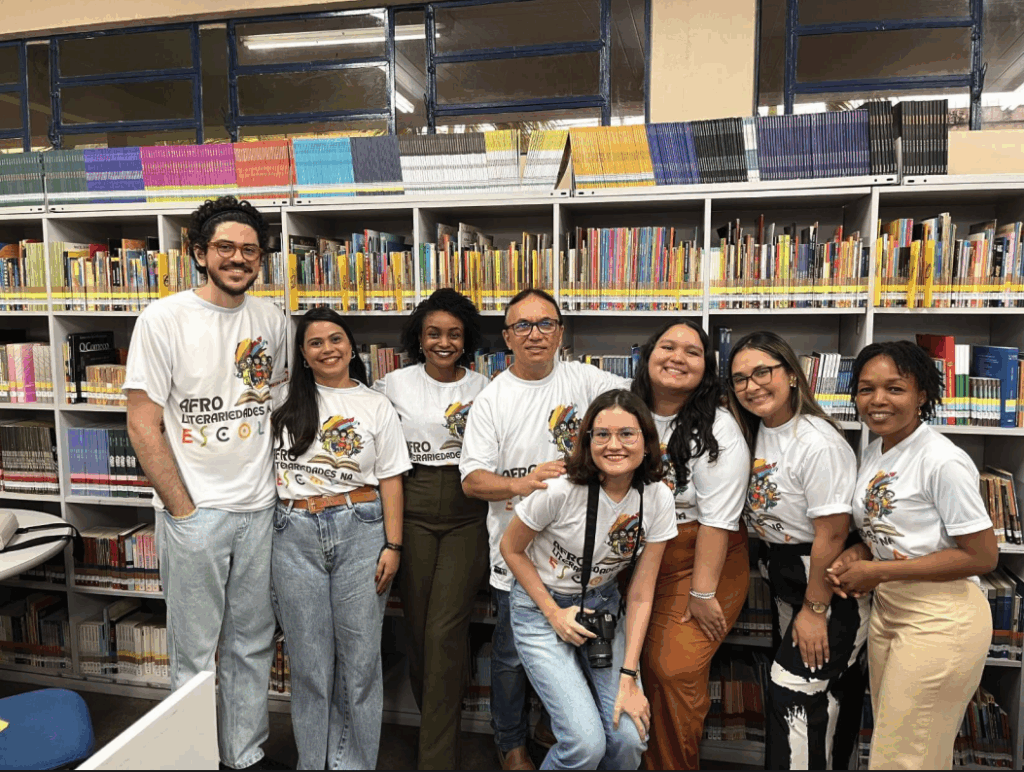CYCLE OF DEBATES: LANGUAGES, ARTS, AND COMMUNITY
Responsible Professors: Allison Leão (PhD) and Luciane Viana Barros Páscoa (PhD)
Click here to access the project's webpage.
the undergraduate Language and Literature program and the Graduate Program in Languages and Arts (PPGLA) through the research group Investigations on Cultural Memory in Arts and Literature (MemoCult) and the Segunda Oficina Publishing Laboratory. The Project is also a partnership between PPGLA and the Language and Literature Student Union (Centro Acadêmico de Letras – ENS). This proposal offers a series of debates to both internal and external communities of UEA. It consists of 8 (eight) debate panels held throughout the year. These panels are held on a monthly basis during the academic year. They focus on research developed by the PPGLA over its 12 years of existence. Each month, the panels will be presented by a pair of speakers according to the following: one PPGLA alumnus/alumna, one current master's student in Language and Arts, and a moderator, represented by a PPGLA faculty member. The panels will be widely publicized, and attendees who participate in at least 75% of the sessions will receive a certificate of participation. Those who attend fewer sessions will receive a declaration of attendance. The project aims to engage current students from UEA, UFAM, and other local universities offering programs in Language and Arts, as well as educators from Basic Education who are graduates of these programs. It also seeks to help prepare and qualify potential future applicants to the PPGLA. The project includes two scholarship recipients: one undergraduate student in Language and Literature and one master's student in Language and Arts.
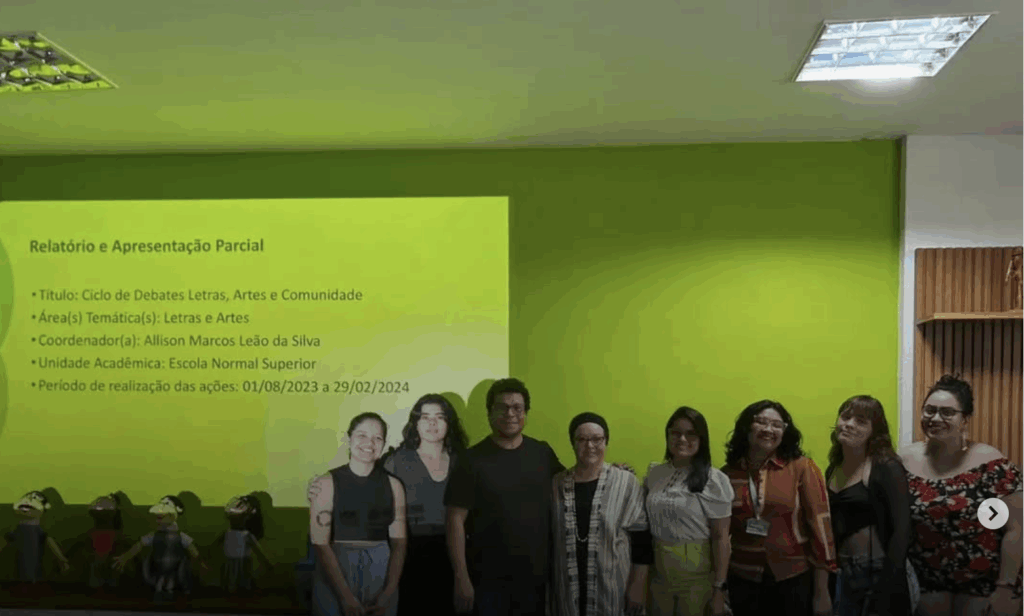
BAROQUE ORCHESTRA OF AMAZONAS
Responsible Professor: Márcio Páscoa (PhD)
Click here to access the project's webpage.
The Baroque Orchestra of Amazonas (OBA), including its soloist nucleus, the Amazonas Baroque Ensemble, is a group dedicated to performing historically informed music from the 17th to the 19th centuries. It uses period instruments—originals or replicas—to recreate the musical practices inherent to the various composers and creative contexts of this period, with particular emphasis on the Luso-Brazilian environment. The ensemble is composed of faculty members from the PPGLA, who perform alongside undergraduate and graduate students involved in the project and occasionally include members of the broader community. The group's practical activities include dozens of performances across all regions of Brazil as well as in Portugal, Spain, Italy, and France, participation in renowned national and international festivals, and the production of four albums in Portugal and Brazil. OBA’s artistic praxis is directly linked to our Graduate Program’s research line Theory, Criticism, and Creative Processes, and is grounded in the restoration of primary documentary sources—identified and studied in significant libraries and collections—to produce transcriptions and editions of musical scores, most of which survive in manuscript form. These investigations also fall under the research line Archive, Memory, and Interpretation. Thus, OBA represents a theoretical-practical process aimed at giving visibility to several of PPGLA’s research activities.
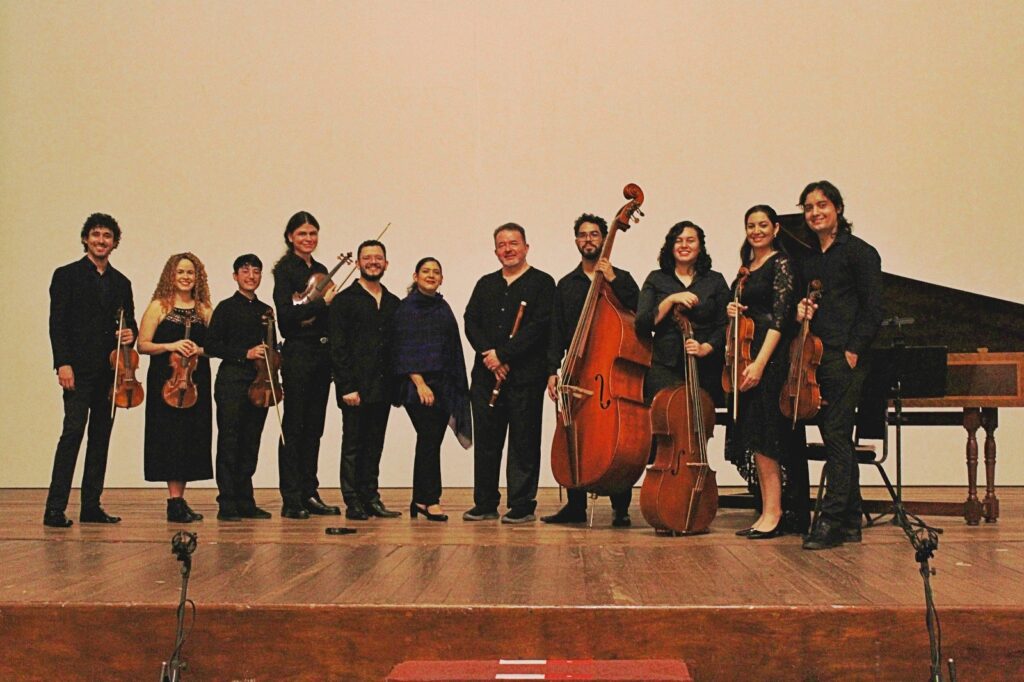
Opus 1: Introductory Course in Musical Creation
Responsible Professor: Caroline Caregnato, Ph.D.
Click here to access the project's webpage.
“Opus 1: Introductory Course in Musical Creation” is a year-long extension project offered at the School of the Arts and Tourism (Manaus) which provides free music lessons for kids. The course focuses on learning musical instruments (such as recorder, percussion, and xylophones), singing, and, most importantly, musical creation. Admission to the course takes place by means of a selection process, usually held at the end of each academic year. Most children admitted are between six and eight years old (specific eligibility criteria are outlined in the public call for applications). “Opus 1” is grounded in the triad of teaching, research, and community outreach, given that apart from being an extension activity, it also serves as a space for music teaching and learning, bringing together undergraduate and graduate students from UEA who work as instructors under the supervision of the project’s coordination team. The project is also a research activity, as the instructors involved produce investigations and theoretical reflections based on the activities carried out within the program.
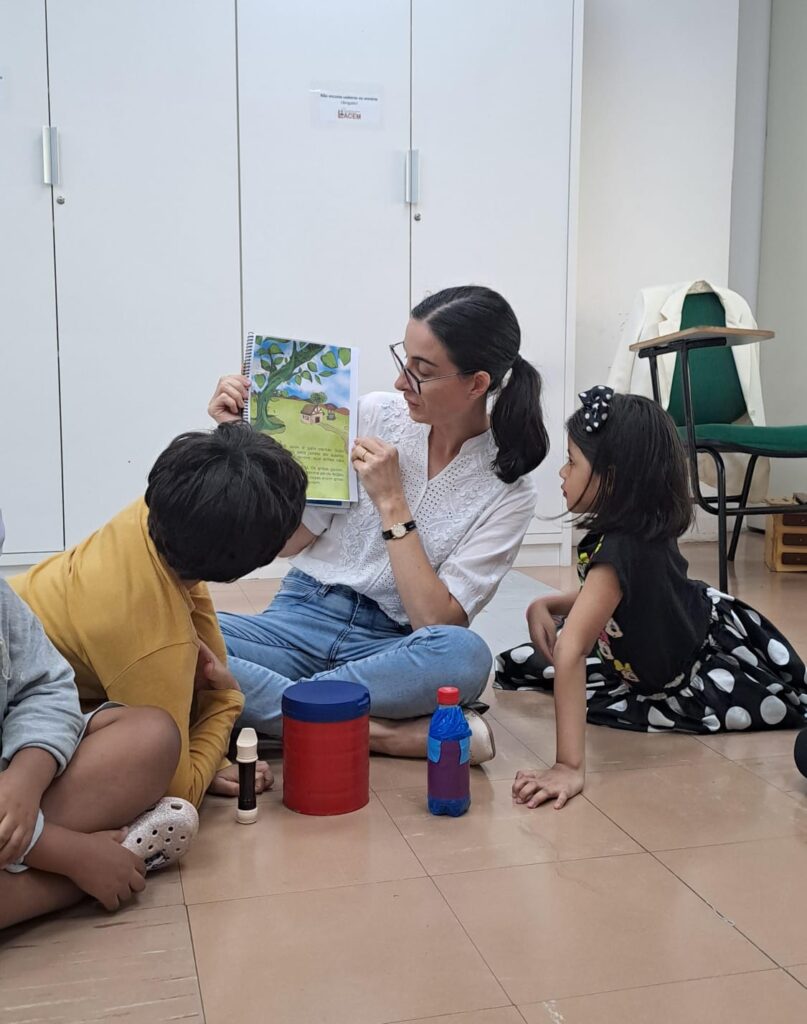
Opus 2: Course on Theory, Perception, and Musical Creation
Responsible Professor: Caroline Caregnato, Ph.D.
Click here to access the project's webpage.
“Opus 2: Course on Theory, Perception, and Musical Creation” is a five-year-long extension project offered at the School of the Arts and Tourism (Manaus) which provides free music lessons to kids and teens. The course focuses on learning musical instruments (such as recorder, percussion, and xylophones), singing, creating, as well as reading and writing music. Admission to the course takes place by means of a selection process, usually held at the end of each academic year. Most attendees admitted are between eight and eleven years old (specific eligibility criteria are outlined in the public call for applications). “Opus 2” is grounded in the triad of teaching, research, and community outreach, given that apart from being an extension activity, it also serves as a space for music teaching and learning, bringing together undergraduate and graduate students from UEA who work as instructors under the supervision of the project’s coordination team. The project is also a research activity, as the instructors involved produce investigations and theoretical reflections based on the activities carried out within the program.
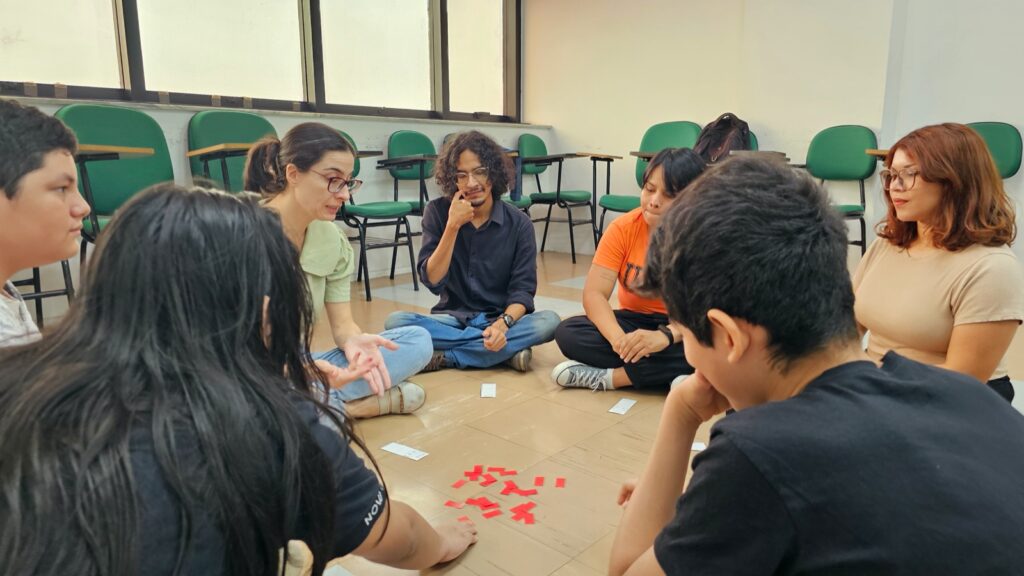
CREATIVE WRITING WORKSHOPS AT SCHOOLS: CREATIVE WRITING EXERCISES AS A TOOL FOR READING
Responsible Professor: Allison Leão (PhD)
Click here to access the project's webpage.
O projeto The project Creative Writing Workshops at Schools: Creative Writing Exercises as a Tool for Reading was developed in 2019 and 2020 as a partnership between the Language and Literature undergraduate program at UEA, the Graduate Program in Languages and Arts at UEA, the Division for Professional Development of Teaching Staff – Municipal Department of Education (DDPM-Semed) and Portuguese teachers who work at public Middle School institutions (from 6th to 9th grades). This project involved the planning, execution, documentation, and reflection of the potential creative writing techniques have – particularly literary writing – as a means to develop students’ aesthetic-literary sensitivity. It emerged as an extension of one of the research lines of PPGLA-UEA, Line 3: Theory and Criticism of Creative Processes, and it aims to promote continuing education for municipal school teachers, support teacher training for undergraduate students at UEA, and foster literary development among students in Manaus public schools.
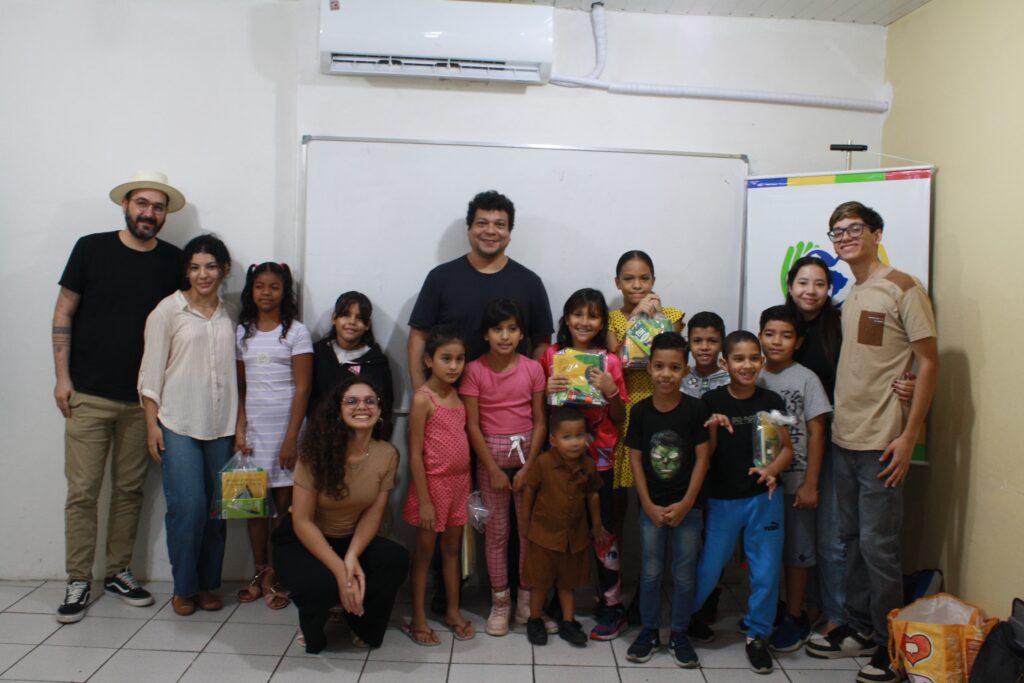
SEGUNDA OFICINA: READING CLUB & CREATIVE WRITING LABORATORY
Responsible Professor: Allison Leão (PhD)
Click here to access the project's webpage.
The project Segunda Oficina: Reading Club & Creative Writing Laboratory is an initiative that links the Languages and Literatures undergraduate program to the Graduate Program in Languages and Arts (PPGLA) employing the research group Investigations on Cultural Memory in Arts and Literature (MemoCult) and the Segunda Oficina Publishing Laboratory, which offers to communities both in and out of the State University of Amazonas (UEA) two six-month cycles of reading and creative writing workshops, with an emphasis on narrative genres. This project is based on two foundations: first, Research Line 3 of PPGLA-UEA, Theory and Criticism of Creative Processes; and second, the elective course Literary Creation Workshop, offered as part of the undergraduate Language and Literature program at ENS-UEA. Groups of up to thirty participants are formed and go through two training cycles: the first consists of a novel-reading club, and the second is a creative writing workshop aimed at guiding each participant in drafting a novel outline. Meetings take place every fifteen days, in which there are reading exercises (in the first cycle) and writing workshops (in the second). Throughout the first cycle, the group is encouraged to read one novel per month. These groups are mixed, in which half is made up of students from UEA and the other half of external interested parties. This promotes different exchanges of knowledge between the academic and external communities, not just by the public, but also through the contribution of local writers who come and occasionally lecture during workshops. Apart from the novel drafts participants also write short stories throughout the course. These stories are published on the PPGLA webpage as literary collections, which are edited and formatted by Segunda Oficina, the literary imprint of UEA Publishing House, managed by MemoCult-PPGLA-UEA. The publication is made available online through the Segunda Oficina platform and is officially released during a literary event held after the project.
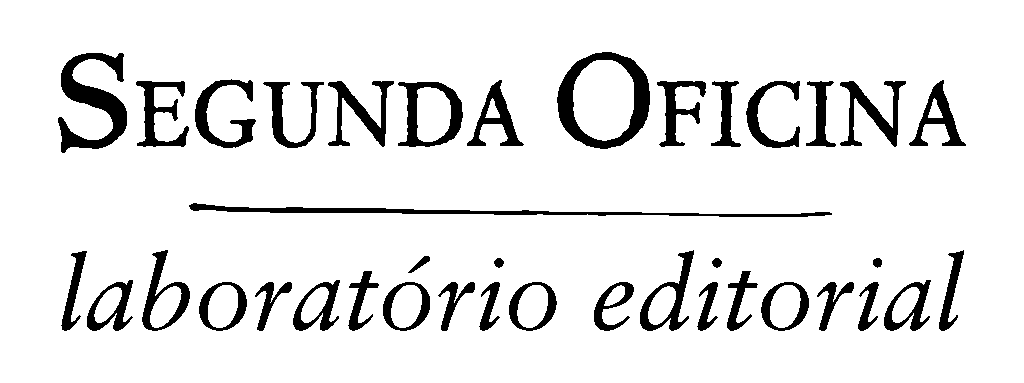
LAUGHTER, BUFFOONERY, AND ARTIVISM: THEORETICAL AND PRACTICAL STUDIES IN POLITICAL PERFORMANCE
Responsible Professor: Vanessa Bordin, Ph.D.
Click here to access the project's webpage.
This project aims to create a theoretical and practical study group on laughter, buffoonery, and artivism in political performance at the State University of Amazonas. In this way, the target audience of the project includes people who are interested in the proposal and the performative practice it inspires. It is open to the UEA academic community, as well as artists, students, and researchers from Manaus. To this end, the project seeks to conduct a theoretical study of political performance, based on the concept of artivism, which relates to laughter and buffoonery through research that explores artivism from the perspective of humor. This will follow a theoretical-practical methodological approach, in which the studies will lead to practical experiments – political performances – that raise questions and condemn urgent issues in our society. These actions, acts, and performances will be presented publicly, since this form of artistic practice assumes direct interaction with the audience, with the intention of opening spaces for debate, reflection, and, perhaps, transformation.
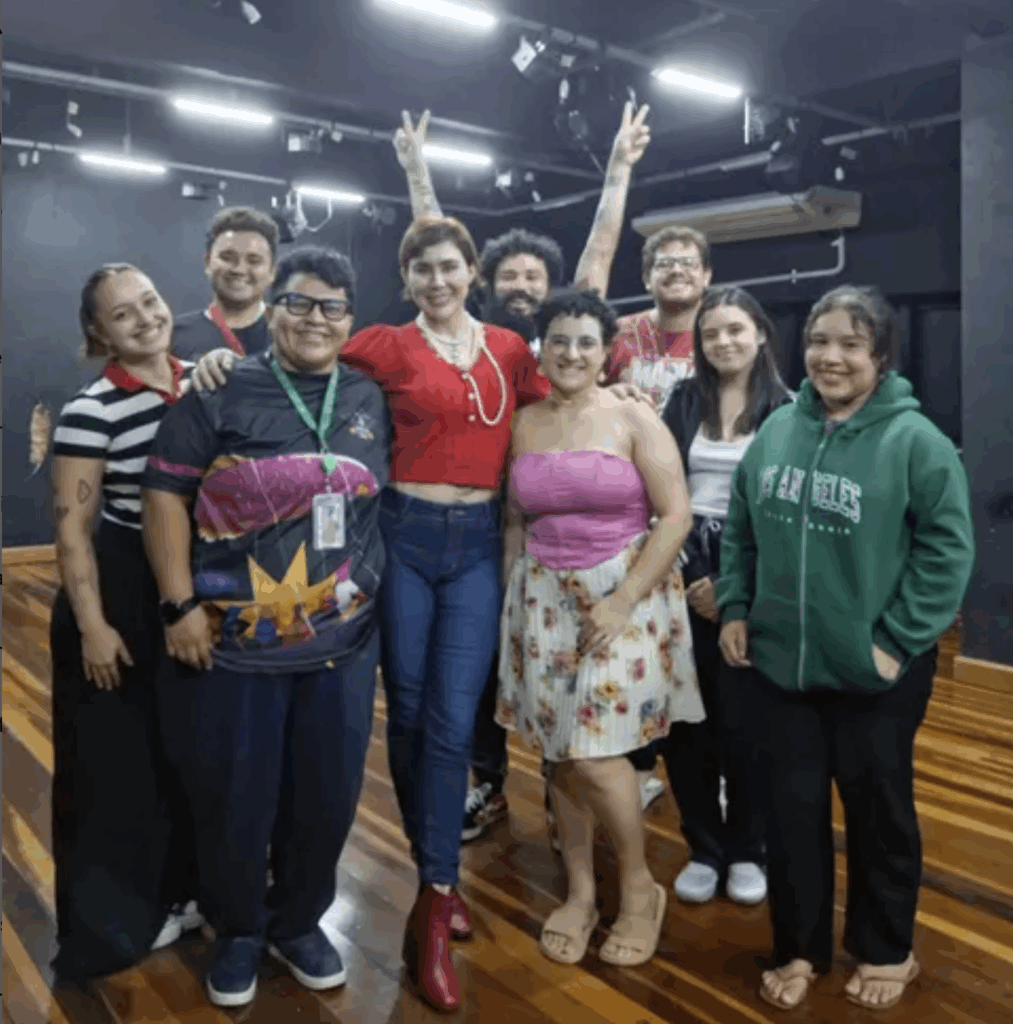
INTRODUCTION TO GRAMMAR THEORY AND ANALYSIS WITH A FOCUS ON THE PORTUGUESE VERB SYSTEM
Responsible Professor: Carlos Renato Rosário de Jesus, Ph.D.
Click here to access the project's webpage.
The course Introduction to Grammar Theory and Analysis with a Focus on the Portuguese Verb System was a project funded under Public Call No. 090/2020 – GR/UEA and officially registered in the Institutional Project System (SISPROJ) under number 30120, as part of the Extension Program of the State University of Amazonas (PROEX/UEA). The course took place from August 10th, 2021, to March 2nd, 2022. It was designed for Portuguese language teachers, Language and Literature students, and other individuals interested in the subject. Its goal was to explore and discuss grammatical practices from a historical and functional perspective.
The course was structured into three modules, delivered remotely via UEA’s Virtual Learning Environment (Moodle platform), totaling 72 hours (24 hours per module). Enrollment was free of charge. In a practical and interactive format, the course was partially taught by undergraduate Language and Literature students, under the supervision of Prof. Dr. Carlos Renato R. de Jesus, Associate Professor at UEA and permanent faculty member of the PPGLA.
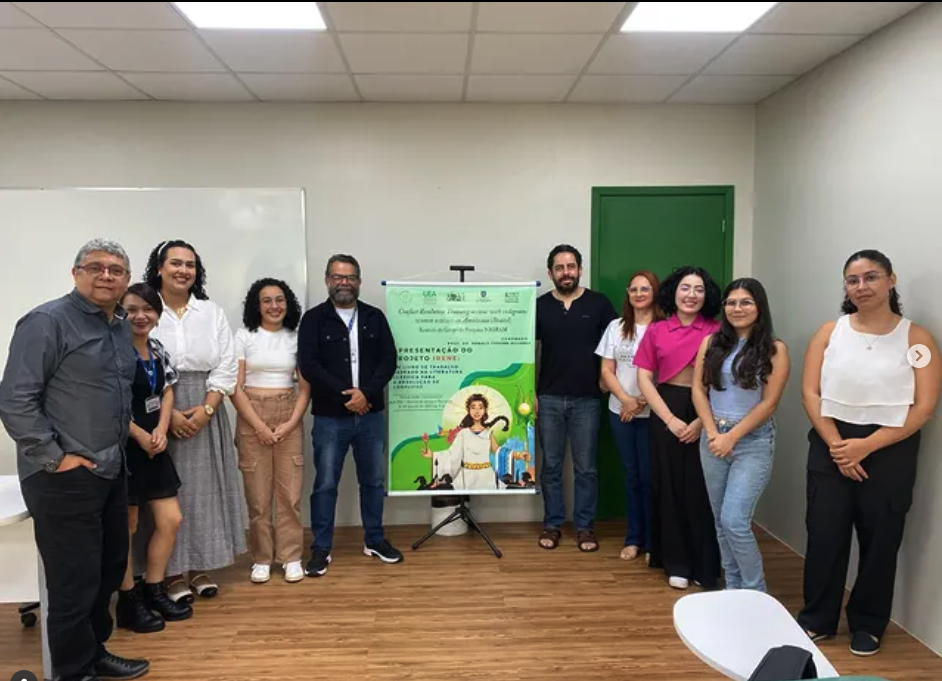
PROJECT AFRO-LITERACIES IN SCHOOLS
Coordinators: Renata Beatriz Brandespin Rolon (Phd) and Lethicia Ramos Bernardino (PhD student at PPGLA-UEA)
Click here to access the project's webpage.
Project developed by researchers from the Study and Research Group on Comparative Studies, Criticism, and Africanities (Gepecca), awarded the Manaus Cultural Identity Prize – Other Languages, Public Call No. 005/2023 (Law No. 195/2022 – Paulo Gustavo) – in the Literature category, Training and Education modality.
Focused on the dissemination of knowledge and the promotion of reading Afro-Brazilian and African literature written in Portuguese, Afroliteracies in Schools seeks to support the implementation of Law No. 10.639/03 in public schools located in the outskirts of Manaus by integrating teaching and academic research. The project’s goals involve contributing to the continuing education of teachers, organizing activities with students in partner schools, producing educational materials in e-book format, and involving students and alumni from Gepecca—coordinated by Prof. Dr. Renata Brandespin Rolon within the Graduate Program in Language and Arts (PPGLA) at the State University of Amazonas (UEA). The project also includes the participation of invited experts, thus building bridges between academia and the community.

